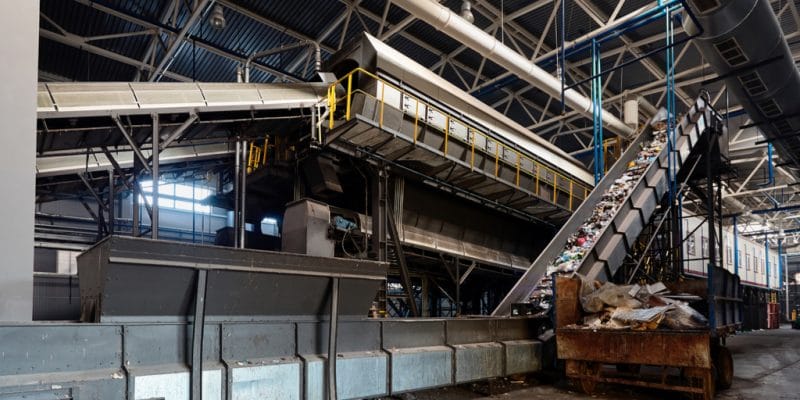Zoomlion, the company that manages waste in several cities in Ghana, has reaffirmed its determination to recycle the waste it collects. It plans to set up a waste processing plant in each region of the country.
Zoomlion’s strategy is clear: to give value to all the waste collected from Ghanaian populations. To this end, the waste management company in Ghana is considering equipping each region with a recycling centre. An approach that the company hopes will allow it to recycle much of the waste produced in Ghana in the coming years.
According to Zoomlion, 12,710 tonnes of solid waste are generated daily in Ghana. As far as liquid waste is concerned, the city of Accra alone produces 26,000 m3 of liquid waste every day. As far as solid waste is concerned, 67% is biodegradable. Food waste accounts for 79% of this fraction, according to a recent study by the company. Other recyclable materials, i.e. scrap metal, plastic, glass, rubber and leather, represent 22%, “which is important enough to support a major recycling initiative”.
Fertilizer production
According to Zoomlion, studies conducted in Ghana’s waste sector show that the company can strongly support Ghanaian agriculture by providing fertilisers. “Every year in Ghana, we import fertiliser worth $38 million. So if we treat our waste here, we can get organic fertiliser from it. That is why Zoomlion has decided to help the government establish waste treatment centres in all regions. They could serve as research centres for universities, so that waste treatment can offer more benefits than simply landfilling,” said Joseph Siaw Agyapong, Zoomlion’s President and CEO.
For the moment, Zoomlion only processes 400 tonnes of waste collected per day. Biodegradable materials are transformed into fertiliser for farmers. Plastic is sold to other (private) operators who add raw materials to it to make products such as chairs, buckets or bowls. These products are the result of the waste treatment units that Zoomlion has commissioned, particularly in the city of Accra with an investment of $20 million.
According to the Institute of Environment and Sanitation at the University of Ghana, the lack of waste recovery infrastructure represents a shortfall of $300 million per year for Ghana. This could encourage Zoomlion to accelerate its project to install recycling plants throughout Ghana.
Jean Marie Takouleu







